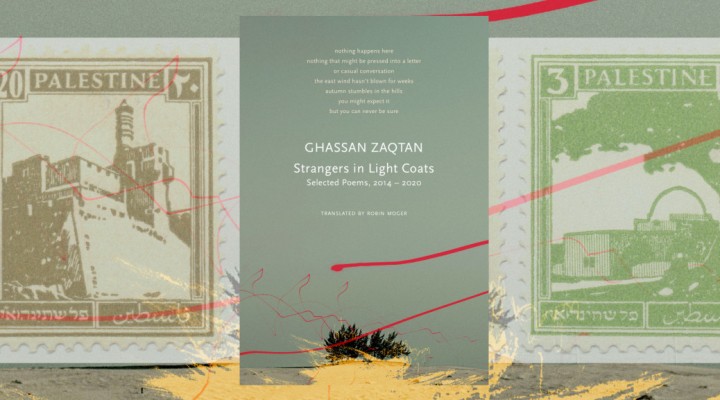Strangers in Light Coats: Palestinian poetry of time, memory, and exile by Ghassan Zaqtan

Ghassan Zaqtan’s ‘Strangers in Light Coats’ is a powerful collection of poems about memory, loss, and the struggles of Palestinians in exile
Ghassan Zaqtan’s poetry is synonymous with memory — and in his latest book, worlds collide and unfurl, then come back together bound by the presence of loss.
Strangers in Light Coats (Seagull Books, 2023) presents a selection of Ghassan’s poetry in English, written between 2014 and 2020 from four different collections.
The book is sectioned into six parts, but the themes Ghassan invokes flow from one section to another, with loss becoming more powerful with each poem. As loss grows, so does memory.
Memory is bound by time, and it also transcends. For Palestinians, memory also exists within the confines of colonisation, which creates another dimension of time before which memory was free and unconstrained.
In Ghassan Zaqtan’s poetry, time and age merge as memory takes over, at times in a way that shifts the reader back to the past as if living it in the present. Both dimensions intertwine, and it is exile that shapes the poetry and guides the reader to understand the loss within. Emptiness accompanies exile, although the former is left behind, as Ghassan writes in his poem When That Happens:
‘He knows in his heart,
in a way of which he knows nothing,
that he has reached his land’
The horrifying scenes of Israeli colonial violence keep spreading through the poetry. It Rained in the Short and Treelined Street commences with recollections that soon branch off into darker memories; rain is no longer an accessory that embellishes a memory, but the force of the memory itself.
Likewise, the force of memory is felt in the poem The City Without Them where Ghassan ponders the fate of the exiles:
‘What is happening to the distant homelands that fill their bedroom walls,
their battered wallets, their pitiful and gaudy flags, their anthems,
cruse and droning, imprisoned in terse phrasing and childish tunes?’
As a recurring theme, absence is conveyed in the poems through the inability to arrive at a destination. Evoking imagery of paths and trails, Ghassan describes a pursuit of travel “but we do not arrive.”
From absence, the poet moves on to emptiness – the inability to see, the incongruence of thought, the void of voices.
Emptiness, however, is also cloaked in memory. At times memory is evoked by names and death, at other times in echoes of life before devastation and its degeneration into death:
‘White with death,
or climbing, leaning
as they went beneath the weight of memory.’
Perhaps one of Ghassan Zaqtan’s most poignant reflections is the poem, The River Hymn where he pleads with nature to be kind to the displaced population and to bestow abundance. Yet, with the Nakba and the history of Palestinians’ forced displacement from their lands, the laceration between land and people runs so deep that no supplication can so far provide either sustenance or shelter.
https://www.newarab.com/features/strangers-light-coats-poetry-time-memory-and-exile
 TheAltWorld
TheAltWorld 
0 thoughts on “Strangers in Light Coats: Palestinian poetry of time, memory, and exile by Ghassan Zaqtan”